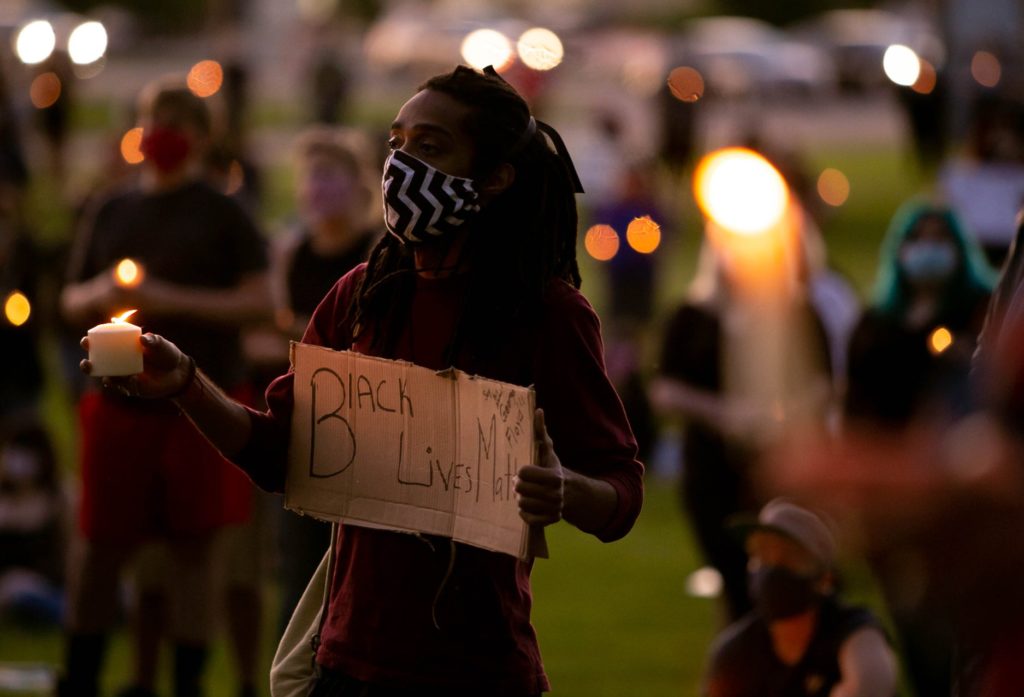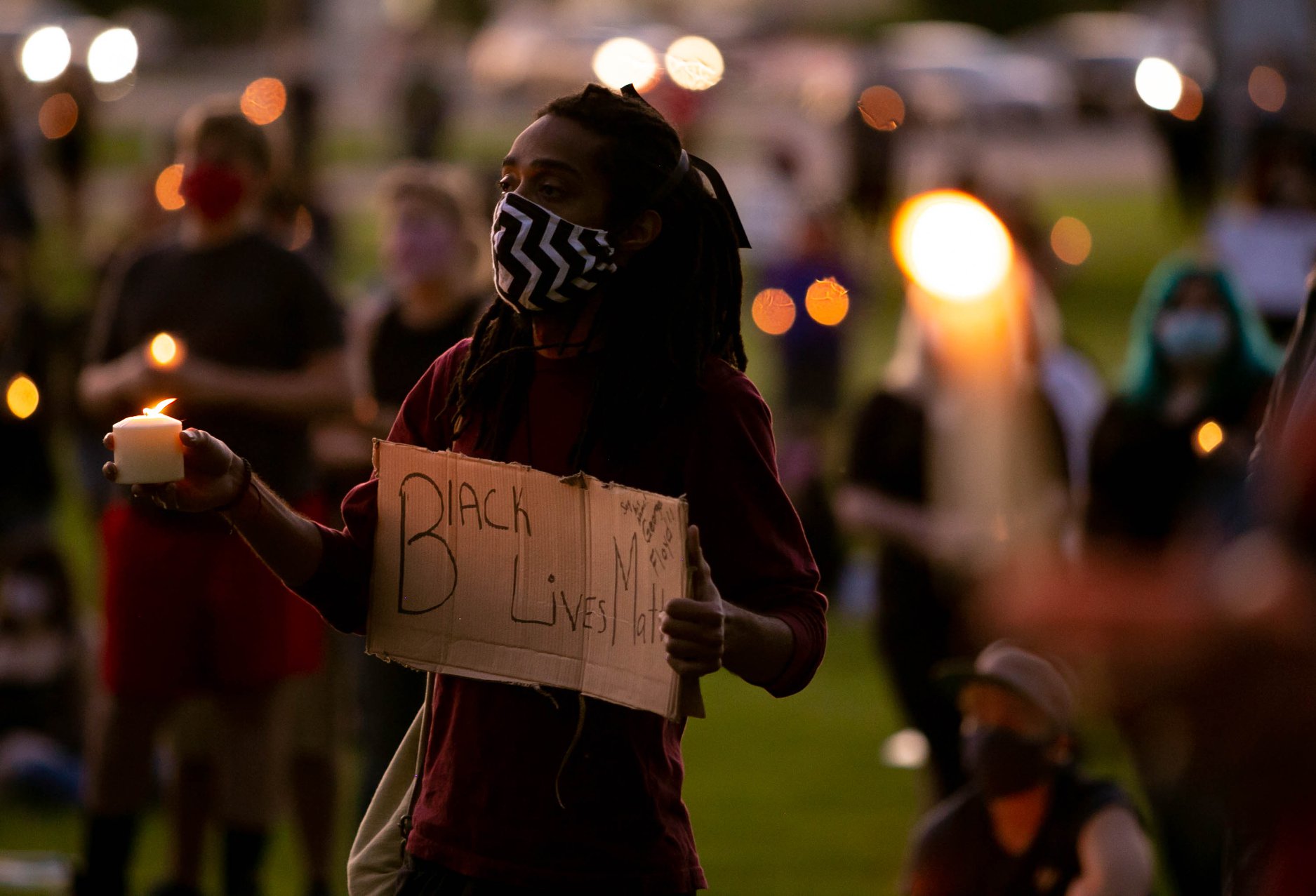We are in the midst of a racial reckoning in our country that is more visible in some places than others, but in all places it is long overdue, including in our newsrooms.
The mostly peaceful protests that have swept the nation following the killing of George Floyd in Minneapolis by police feel like a turning point for equality and justice, and we have responsibility to report that story in ways we may never have done before.
It isn’t going to be easy.
Our readers are suspicious of us and our motives because in some cases they’ve been told to be and in others we’ve given them a reason. Accusations of “fake news” have permeated every corner of our country, regardless of how big or small our publications are. That makes it especially hard during the pandemic to rally our communities around us as we, too, struggle financially. We aren’t considered “essential” in many places, even though we know that when local journalism goes away, communities suffer. That’s not just hyperbole. Local officials who pass laws and govern without local journalists watching them do so in the dark, and studies have shown that when that happens, voter turnout is lower and governments get less efficient.
I teach a course on war reporting every spring, and I ask my students to imagine what would happen if the government were the sole source of information when America is at war. We would always be winning. The parallels are apt for the coronavirus pandemic. If the government were our only source of news, we would not know about critical health care or testing shortages or where infection rates were increasing. We would always be winning.

It’s hard to know where to begin in tackling the issues confronting us right now as journalists in America. Like everything else, we, “the media,” have been politicized, which is frustrating to so many of us who got into this business simply to inform, without a partisan agenda.
It’s also hard to know how to balance the deep divisions and politics of our readers themselves. Some of us are in communities that are deeply against any calls for police reform or who simply don’t believe, based on their own individual white privileged experience, that abuse happens. Some of us are in communities that largely have low rates of infection from the coronavirus and yet the jobless rates are skyrocketing and small business owners are hurting. When we write about the pandemic, we often get accused of sensationalizing it because of this.
Even at Gateway Journalism Review, we hear from readers unhappy about our focus on covering Black Lives Matter or issues of race. If you subscribe to our digital newsletter, you know we are committed to stories about journalists of color and women, about highlighting successes and also in calling out racism and sexism. We’ve heard in recent weeks from readers who somehow equate the attention we are giving journalists covering the George Floyd protests to liberalism. We’ve been told we’ve lost our “conservative” roots. If that is code for an objection to our commitment to undoing racism in our own coverage and in our own virtual newsroom, we accept the indictment.
We must do a better job of explaining to our communities that we are part of them and also how we convey information. We can do this through direct communication, virtual forums or even Instagram stories that show us doing our jobs. We must do a better job of explaining to our communities how we scrutinize information, what steps we take to be fair and why we won’t peddle in false equivalencies. We have to push back against this nonsense that all individual journalists are driven by the political agenda, that somehow we have profited off of the pandemic or the protests. Many of our colleagues have been laid off or furloughed and entire publications have been shut down. Many of the largest papers are giving away their pandemic coverage for free.
It will take courage, especially when it comes to confronting racial injustice, especially within our own newsrooms and communities.
Some of us live in places where racism has been allowed to fester and simmer for generations and calling it out will be threatening to those who have benefited from it. Others of us have been harmed deeply by that racism.
I know the road is long. I’m not naive to that or to what it’s going to take to be a part of a movement for civil rights for all Americans.
But we can look carefully at our own newsrooms, starting with diversifying them, but also in scrutinizing how we are telling these stories and if we are doing enough to explain to our readers what it is we do. Newsrooms that decide to adopt the AP Stylebook’s recent change to capitalize Black when referring to people should explain to their readers why it’s important, just as the Associated Press did in announcing the change. Newsrooms that decide not to, especially if they’ve adopted all other changes, need to answer to that as well.
We can be a catalyst for conversation in our communities, bringing people together to discuss the issues, hosting town halls virtually right now and sponsoring events in which people are able to talk to each other and over the noise of social media.
If we haven’t actively sought ways to confront the racism in our communities by reporting on it, we have been complicit in allowing it to continue. We can no longer be silent. We need to report from and for the marginalized members of our communities, for people who have been hurt. We need to report on ourselves.
A number of newspapers have published open apologies for the way they contributed to slavery and discrimination even during the decades-long civil rights movement that began in 1954.
And yet most newsrooms remain disproportionately white, especially in comparison to their communities. Bias still exists, even unintentional. It’s in the language we choose, the people we quote and the people we don’t.
We shouldn’t wait for history to demand a correction.
A version of this story first appeared in Publisher’s Auxiliary, the only national publication serving America’s community newspapers. It is published by the National Newspaper Association. GJR is partnering with Pub Aux to re-print Jackie Spinner’s monthly “Local Matters” column on our website. Spinner is the editor of Gateway Journalism Review. Follow her on Twitter @jackiespinner.
